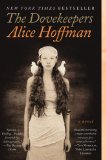Summary | Excerpt | Reading Guide | Reviews | Beyond the Book | Readalikes | Genres & Themes | Author Bio

A Novel
by Alice HoffmanChapter 1
The Assassin's Daughter
We came like doves across the desert. In a time when there was nothing but death, we were grateful for anything, and most grateful of all when we awoke to another day.
We had been wandering for so long I forgot what it was like to live within walls or sleep through the night. In that time I lost all I might have possessed if Jerusalem had not fallen: a husband, a family, a future of my own. My girlhood disappeared in the desert. The person I'd once been vanished as I wrapped myself in white when the dust rose into clouds. We were nomads, leaving behind beds and belongings, rugs and brass pots. Now our house was the house of the desert, black at night, brutally white at noon.
They say the truest beauty is in the harshest land and that God can be found there by those with open eyes. But my eyes were closed against the shifting winds that can blind a person in an instant. Breathing itself was a miracle when the storms came whirling across the earth. The voice that arises out of the silence is something no one can imagine until it is heard. It roars when it speaks, it lies to you and convinces you, it steals from you and leaves you without a single word of comfort. Comfort cannot exist in such a place. What is brutal survives. What is cunning lives until morning.
My skin was sunburned, my hands raw. I gave in to the desert, bowing to its mighty voice. Everywhere I walked my fate walked with me, sewn to my feet with red thread. All that will ever be has already been written long before it happens. There is nothing we can do to stop it. I couldn't run in the other direction. The roads from Jerusalem led to only three places: to Rome, or to the sea, or to the desert. My people had become wanderers, as they had been at the beginning of time, cast out yet again.
I followed my father out of the city because I had no choice.
None of us did, if the truth be told.
I DON'T KNOW how it began, but I know how it ended. It occurred in the month of Av, the sign for which is Arieh, the lion. It is a month that signifies destruction for our people, a season when the stones in the desert are so hot you cannot touch them without burning your fingers, when fruit withers on the trees before it ripens and the seeds inside shake like a rattle, when the sky is white and rain will not fall. The first Temple had been destroyed in that month. Tools signified weapons and could not be used in constructing the holiest of holy places; therefore the great warrior king David had been prohibited from building the Temple because he had known the evils of war. Instead, the honor fell to his son King Solomon, who called upon the shamir, a worm who could cut through stone, thereby creating glory to God without the use of metal tools.
The Temple was built as God had decreed it should be, free from bloodshed and war. Its nine gates were covered with silver and gold. There, in the most holy of places, was the Ark that stored our people's covenant with God, a chest made of the finest acacia wood, decorated with two golden cherubs. But despite its magnificence, the first Temple was destroyed, our people exiled to Babylonia. They had returned after seventy years to rebuild in the same place, where Abraham had been willing to offer his son Isaac as a sacrifice to the Almighty, where the world had first been created.
The second Temple had stood for hundreds of years as the dwelling place of God's word, the center of creation in the center of Jerusalem, though the Ark itself had disappeared, perhaps in Babylonia. But now times of bloodshed were upon us once more. The Romans wanted all that we had. They came to us as they swarmed upon so many lands with their immense legions, wanting not just to conquer but to humiliate, claiming not just our land and our gold but our humanity.
Excerpted from The Dovekeepers by Alice Hoffman. Copyright © 2011 by Alice Hoffman. Excerpted by permission of Scribner. All rights reserved. No part of this excerpt may be reproduced or reprinted without permission in writing from the publisher.
Your guide toexceptional books
BookBrowse seeks out and recommends the best in contemporary fiction and nonfiction—books that not only engage and entertain but also deepen our understanding of ourselves and the world around us.